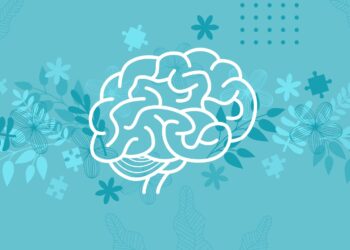Mental health can feel like a mysterious puzzle, and sometimes, the pieces just don’t fit. Ever notice a friend who’s suddenly more withdrawn than a cat in a dog park? Or perhaps someone’s mood swings are rivaling a rollercoaster ride? These symptoms can be more than just quirky behaviors; they might signal a need for mental health treatment.
Understanding the signs that someone may need support isn’t just helpful—it’s essential. Whether it’s persistent sadness, anxiety that feels like a pet octopus wrapping around them, or changes in sleep patterns that could rival a night owl’s schedule, recognizing these symptoms can make a world of difference. Let’s dive into the signs that might just indicate it’s time to seek help, because everyone deserves a little mental TLC.
Which Symptom Indicates That Someone May Need Mental Health Treatment?
Recognizing mental health symptoms is essential for timely intervention and support. Various signs indicate a person may require mental health treatment.
Common Warning Signs
Withdrawal from social activities often signals distress. Changes in behavior such as increased irritability or agitation may also indicate a problem. Significant alterations in appetite, either an increase or decrease, can manifest as a warning sign. Those experiencing unexplained physical symptoms, like headaches or stomachaches, might need attention as well. Changes in sleep patterns, including insomnia or excessive sleeping, frequently occur in individuals struggling with mental health issues.
Emotional Indicators
Persistent sadness lasting more than two weeks usually requires evaluation. Feeling hopeless or helpless often suggests the need for support. Extreme mood swings can disrupt daily functioning, warranting further examination. Anxiety that interferes with daily routines typically signifies an underlying issue. Frequent feelings of anger, frustration, or emotional numbness also call for awareness and potential treatment.
Physical Symptoms of Distress

Recognizing physical symptoms of distress is vital for identifying when someone may require mental health treatment. These symptoms can manifest in various ways, influencing overall well-being.
Changes in Sleep Patterns
Changes in sleep patterns often signal mental health struggles. Difficulty falling asleep or staying asleep may occur alongside increased anxiety. Some individuals experience insomnia, while others may oversleep, known as hypersomnia. Both extremes indicate a potential need for support. Additionally, frequent nightmares can disrupt rest and affect daily functioning. Tracking sleep quality and duration provides essential insight into mental health. Persistent changes in sleep habits warrant attention, especially if they’re coupled with other symptoms.
Appetite Changes
Appetite changes serve as another crucial indicator of mental distress. Some individuals lose interest in food, leading to significant weight loss. Others might find themselves eating compulsively, resulting in weight gain. These shifts often reflect underlying emotional challenges. Increased cravings for unhealthy foods can also emerge, which may be linked to stress or anxiety. Observing these appetite changes can provide vital clues about someone’s mental state. When these changes persist for over two weeks, they signal the need for further evaluation and potential treatment options.
Behavioral Changes to Watch For
Observing behavioral changes is vital in detecting potential mental health issues. Certain signs, like withdrawal and declining performance, indicate individuals may require support.
Withdrawal from Social Activities
Withdrawal from social activities often points to underlying mental health concerns. Individuals may avoid gatherings or stop responding to friends and family. They may also decline invitations and lose interest in hobbies they once enjoyed. Withdrawing can lead to increased feelings of loneliness and isolation, worsening their mental state. If this kind of behavior persists over a few weeks, intervention may become essential for their well-being.
Declining Performance at Work or School
Declining performance at work or school serves as another significant indicator of mental health challenges. Individuals might struggle to meet deadlines or complete tasks they previously managed well. Grades may drop, or workplace evaluations may reflect a lack of focus and productivity. Difficulty maintaining relationships with colleagues or classmates often accompanies this decline. Recognizing such changes early is crucial, as they frequently signal the need for professional help and support.
When to Seek Help
Recognizing the right time to seek mental health support is crucial for well-being. Several signs indicate an individual may need professional assistance.
Importance of Early Intervention
Early intervention significantly improves mental health outcomes. Identifying symptoms quickly can prevent escalation into more severe issues. Persistent sadness lasting over two weeks or noticeable changes in behavior may signal the need for support. When individuals address their mental health struggles early, they often experience quicker recovery. Prioritizing timely intervention means they can regain control of their lives and reduce the risk of deeper mental health crises.
Seeking Professional Advice
Consulting a mental health professional can provide tailored guidance and treatment. Observing symptoms like increased irritability or withdrawal from social activities calls for expert assessment. Professionals can offer effective coping strategies and therapeutic options. Individuals benefit from personalized care that addresses their unique challenges, especially when anxiety interferes with daily routines. Seeking help fosters an environment where individuals can talk openly about their feelings and receive the support required for their journey toward better mental health.
Conclusion
Recognizing the signs that indicate a need for mental health treatment is vital for fostering well-being. Individuals experiencing persistent sadness mood swings or significant changes in behavior should not hesitate to seek help. Early intervention can lead to better outcomes and a quicker path to recovery.
It’s essential to create an environment where discussing mental health is normalized and supported. By staying aware of these symptoms and encouraging open conversations, friends and family can play a crucial role in guiding loved ones toward the professional help they may need. Everyone deserves the opportunity to thrive and regain control over their mental health journey.













Discussion about this post